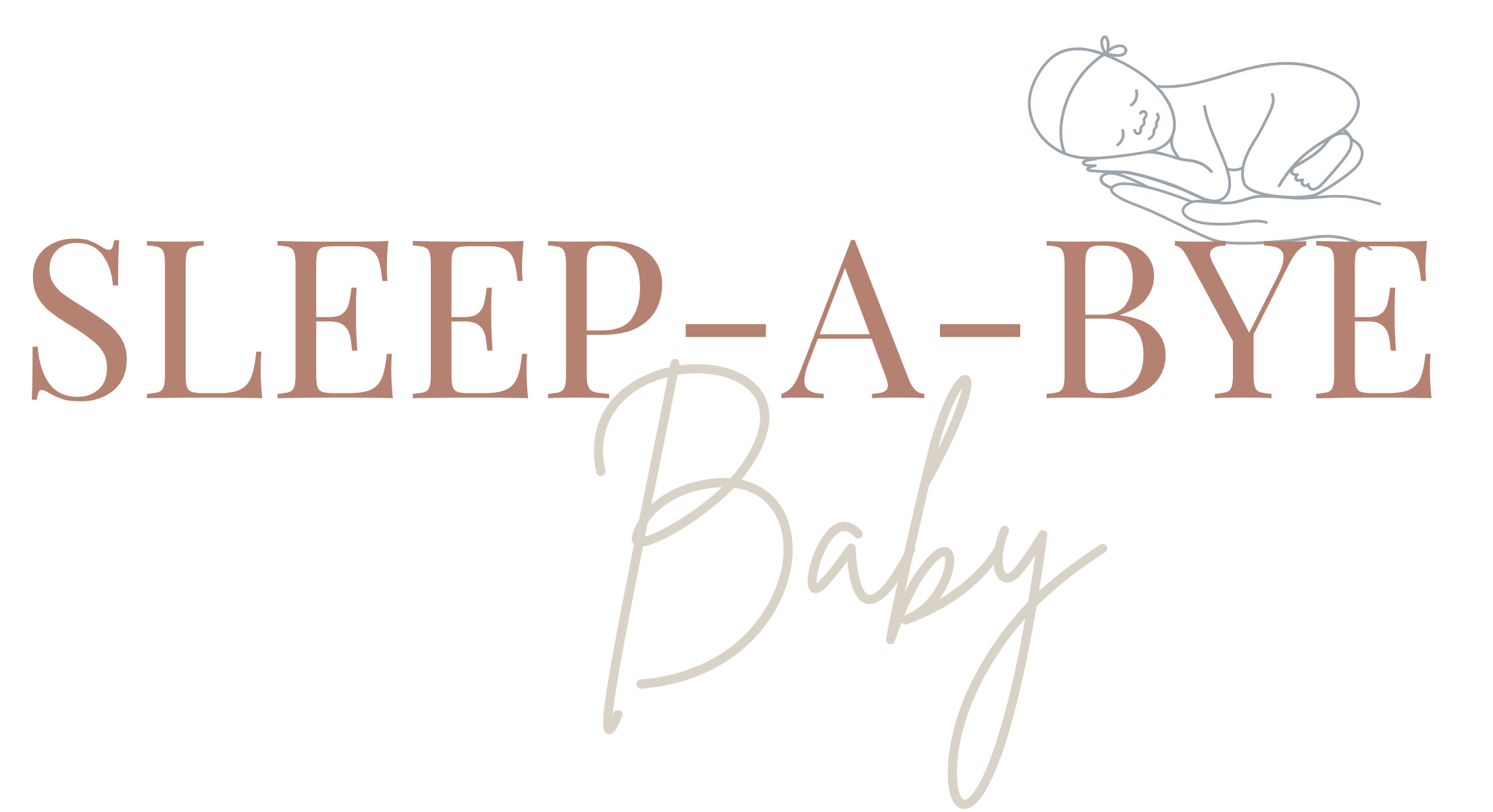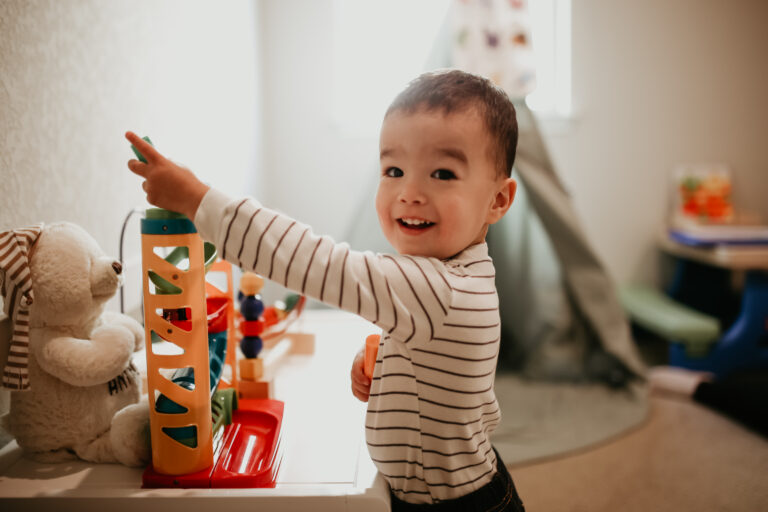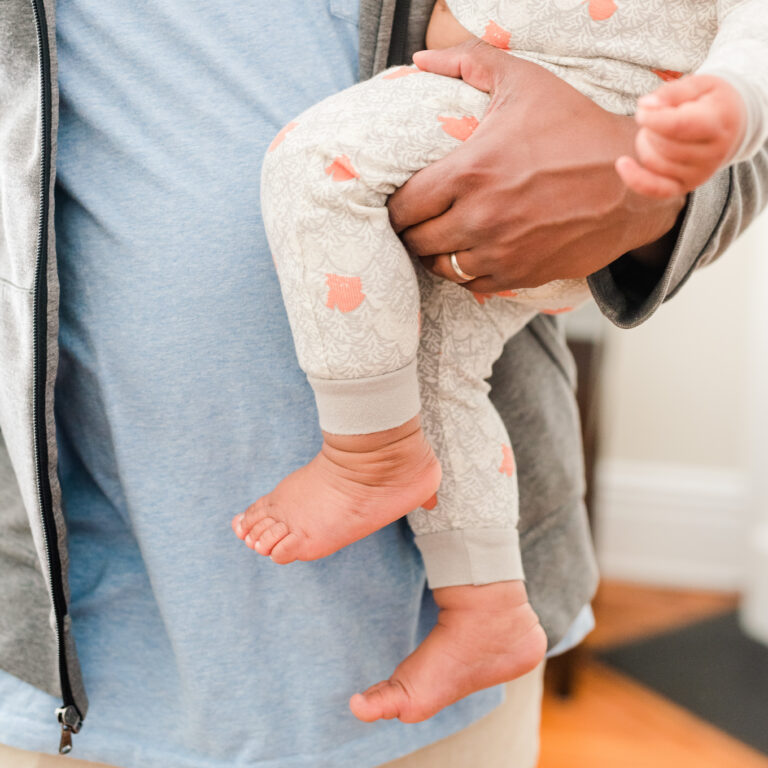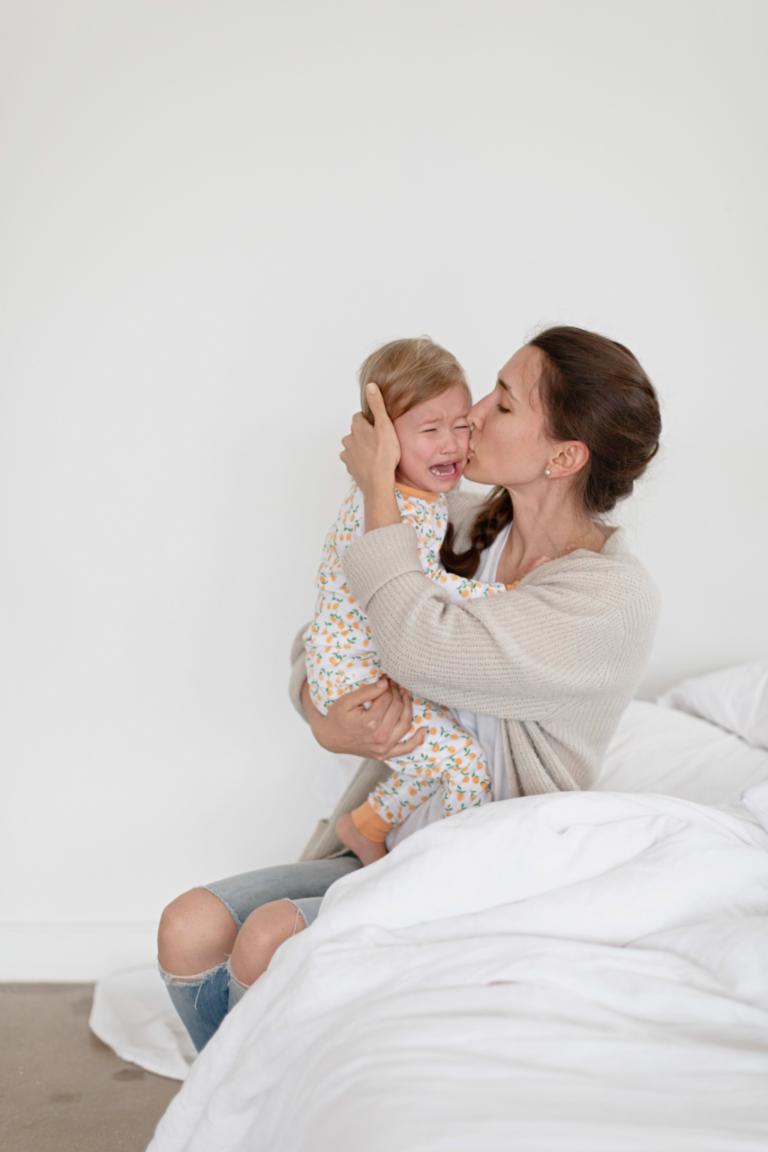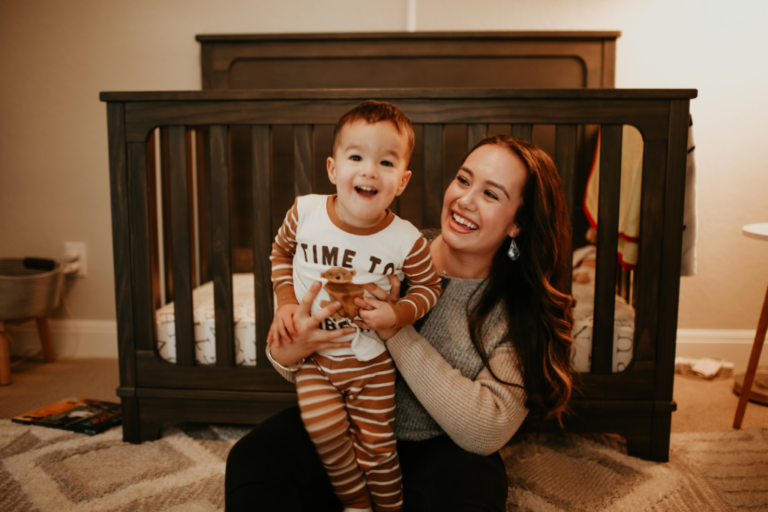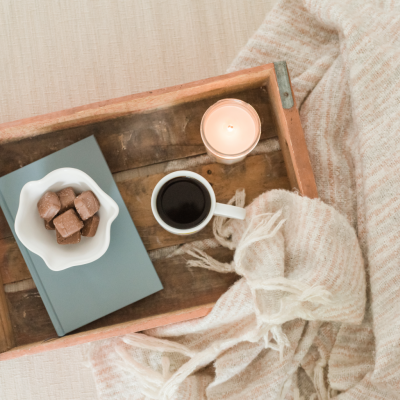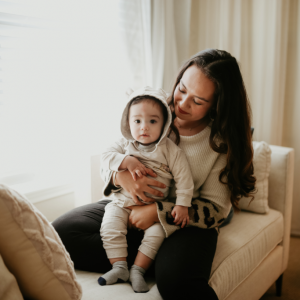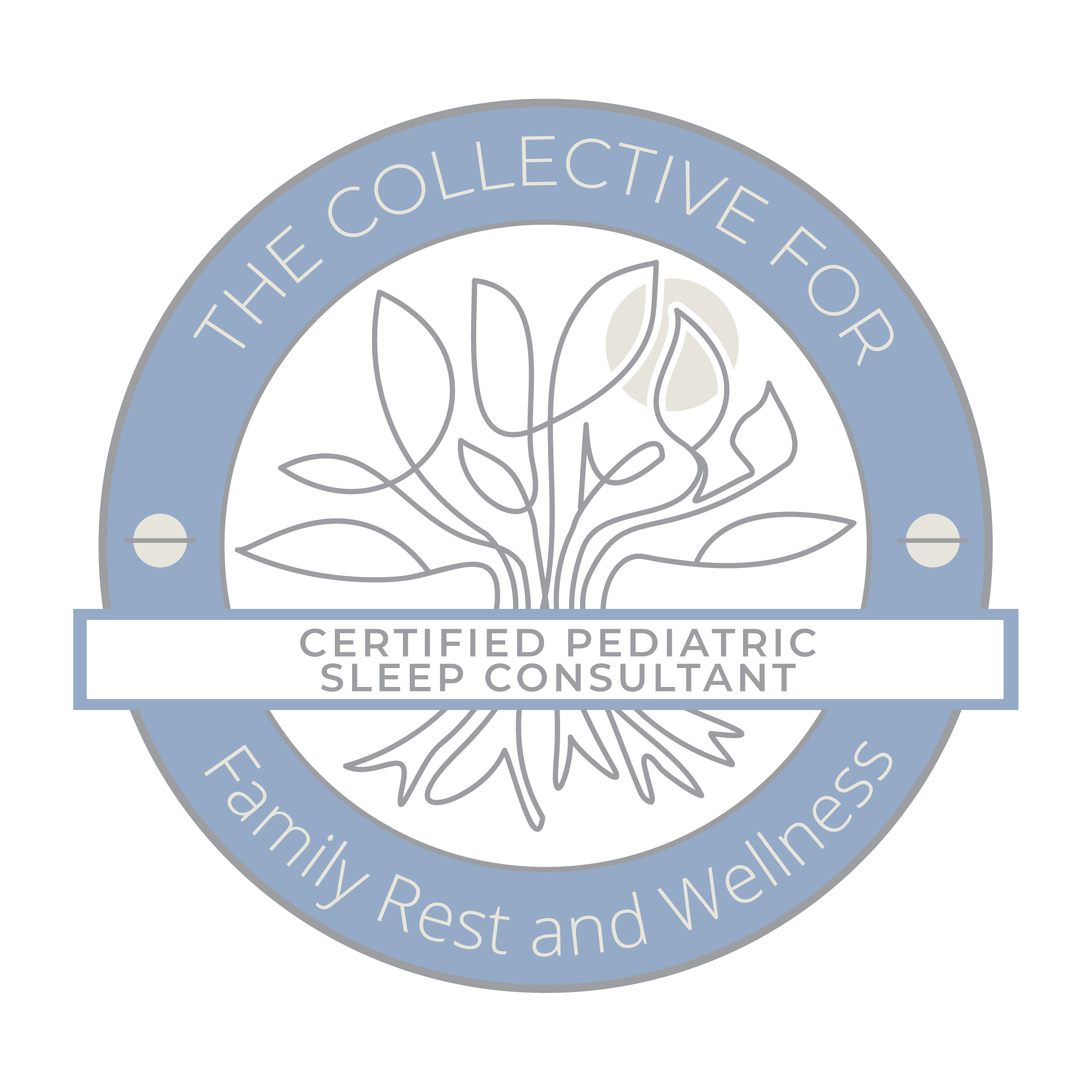If you are a parent of a toddler and are in the midst of potty training – this blog post is for you!
Whether potty training is on the horizon for your toddler or you are currently going through the thick of it, you probably already know that the process is less than exciting. Learning how to use the potty for your toddler is filled with constant potty accidents, loss of sleep, and increased push-back and power struggles.
Coming from someone who is currently going through this process with my highly spirited (and very strong-willed toddler…yikes!), I can relate to all of the craziness that potty training has to offer!
Now, if you have not already started the potty process, please do NOT be alarmed! Every child is different in how they respond to potty training and is highly dependent on your child’s temperament and potty readiness. However, I do like to be as realistic as possible when it comes to all things sleep and potty training to make sure we can be the most prepared for when we start the process!
Even though potty training can bring about a lot of frustrations, my goal for this blog post is to reduce the SLEEP struggles surrounding potty training.
So are sleep and potty training connected? Does one affect the other? Yes and yes! And how exactly are they related? Let’s keep reading to find out!
The two stages of potty training
There are two stages of potty training that are widely addressed by pediatric experts: daytime and nighttime training.
The reason these stages are broken up by day and night is that daytime training has been shown to be easier for toddlers to catch onto. This is because for children to learn how to control their bladders at night-time, they must learn how to first control their bladders while they are awake. This helps them to become aware of this new bodily function to reduce potty accidents and push back over time.
In addition, most children have bowel control and daytime urine control by age 3 or 4. Soiling or daytime wetting after this age should be discussed with your child’s healthcare provider.
How sleep and potty training affect one another
How sleep affects potty training
Okay so how exactly does sleep affect potty training? The answer lies with your child’s ability to control their bladder during sleep. As stated above, daytime bladder control occurs between the ages of 3 and 4 years of age, so it should be the same for nighttime right? Wrong.
Nighttime bladder control usually comes much later than daytime control. Complete nighttime control may not happen until your child is 4 or 5 years old, or even older. If your child is age 5 or older and does not stay dry at night, you should discuss this with your child’s healthcare provider.
With this being said, if your child is having bed-wetting accidents constantly before the age of 5, this is NORMAL. Remember that your toddler’s body is still growing and developing. Over time, your toddler will develop the mind-body connection he needs to wake up during the night in order to go potty. For some toddlers, this happens quickly. For others (particularly toddlers who are very deep sleepers), it may take a lot longer.
How potty training affects sleep
You may already know the MANY (oh so many!) things that can affect your child’s sleep – teething, regressions, growth spurts, and more. And just when you thought you were over the hump of your little one’s sleep taking a hit – BAM potty training rears its ugly (and quite stinky) head!
As with any milestone, potty training is likely to cause temporary disruptions in sleep, bowel, and eating habits as well as in your child’s overall mood and behavior. While frustrating, disturbances or regressions in other areas are to be expected when the body and brain are taking a big leap in another area. In addition, your child is utilizing different parts of their brain during this time to problem solve and make that mind-body connection that is essential for them to use the potty successfully.
No wonder they are more overtired during this time! They are just trying to connect all the pieces together…but that is what you are there for! To make the ever-so daunting task of potty training at least a little easier when it comes to sleep!
Ways to reduce sleep struggles during potty training
The potty training process can take a hit on your child’s sleep in one of two ways: they will either get more sleep OR less sleep. Some children, depending on temperament and potty training readiness, may sleep more since their little brains are working overtime to make the mind-body connection I mentioned above. However, more often than not, many children will experience less sleep and that is OKAY!
Potty training’s a bit like sleep training in this way — during the process itself, no one’s going to sleep very well, but in the end, it’s worth it. However, there are ways you can help minimize nighttime and naptime struggles and early morning wakings during potty training.
Here are 5 tips for maximizing sleep and maintaining your sanity while potty training!
Do not transition out of the crib too early
There is a BIG myth out there that children need to be transitioned out of their crib before potty training can occur. This is a BIG no-no!
The first reason this is a myth is that many people believe that children cannot adequately use the potty if they are locked behind their crib bars. However, as mentioned above, nighttime urine control does not happen until way later. So expecting a 2-year-old to wake right when they feel discomfort in their bladder after a few days of potty training, is like asking a newborn to sleep 12 hrs their first night of sleep training…it is just not happening!
The second reason this is a myth is that children are not developmentally ready to move out of their crib until the age of 3. This means that if they are moved out before then, they will not be able to cognitively make the connection of staying in their toddler bed without any boundaries. It is like asking a newborn to walk already…they physically and mentally cannot do it.
This is not to say that some children do not move out into a toddler bed and do just fine! If this is the case for your child, and moving out into a toddler bed is going well and not causing sleep struggles, then keep doing what you are doing!
But please do not move your child out of the crib for the sake of potty training! Potty training can happen before your child is in their own toddler bed without the pressure of needing to focus on a nighttime training
Keep the pull-ups nearby
Now hear me out on this one…when I first started to prepare my son for potty training, the biggest advice I got was, just ditch all of the pull-ups so you will not be tempted to go back to them when the going gets tough.
And I will say, after much research and personal experience with my toddler, this is NOT valid advice and can lead to unnecessary sleep struggles and regressions in both potty and sleep training.
Remember that since nighttime bladder control does not occur until the age of 4 and 5, keeping pull-ups on at nighttime is important before then. It also reduces the pressure for your toddler to potty train both for days and nights when they are just too mentally and physically tired to do so!
However, I do recommend keeping underwear on during the day for as long as possible but keeping pull-ups nearby in case you see your toddler struggling with the transition!
Avoid falling back into old sleep habits
Because this potty learning process involves your child beginning to recognize the sensations of being wet or soiled and then the sensations of needing to go, they may begin to wake overnight, during naps, or too early in the morning.
So try to avoid introducing new, or reviving old, habits if your child begins to wake overnight. Know in advance what you will and won’t do and don’t respond or help more than is needed. For example, if you can respond at their doorway and tell them it is still time to sleep rather than pulling them into your bed or climbing into theirs, sleep will bounce back far more quickly. You can also grab my free nap guide and wake window guide to keep your little one on track for their sleep during the potty learning process!
Limit beverages before bed to avoid bedwetting accidents
Once your child is showing signs of nighttime potty readiness (ie. little to no accidents during the day, waking up with a dry diaper from overnight, telling you they are needing to potty in the middle of the night, etc.), give your child a better chance at staying dry overnight by avoiding or at least seriously limiting beverages in the 1.5 to 2 hours before bed. Also, be sure to make a potty stop at the beginning of the bedtime routine and consider a “double pee” – adding one more potty stop in just before the final tuck and lights out.
Do not tackle sleep and potty training at the same time
I have worked with several parents that have an “all-in” mentality when it comes to sleep training. Meaning, that they want to move their toddler to their new toddler bed, during sleep training all while starting daycare! While I love the enthusiasm surrounding sleep, I also suggest following my rule of 1:3.
This rule stresses the importance of focusing on introducing and practicing ONE new skill/life event for 3 months before introducing another one to your child. So if this means you want to focus on sleep training your little one before potty training, then I would focus on getting more sleep for your child for at least 3 months before tackling potty training. This goes for everything else. Have a new sibling coming soon? Make sure sleep training occurs at least 3 months before their arrival.
And there you have it! I can guarantee sticking to these tips will help reduce sleep struggles during your little one’s potty training process and hopefully make parenting a bit easier!
If you are close to potty training your child OR are past potty training and want to start utilizing sleep training for your little one, check out my toddler sleep services here so you can feel better prepared to tackle your child’s sleep!
Parenting can be hard, but getting good rest does not have to be.
Live, Laugh, & Sleep Well Honeys!
